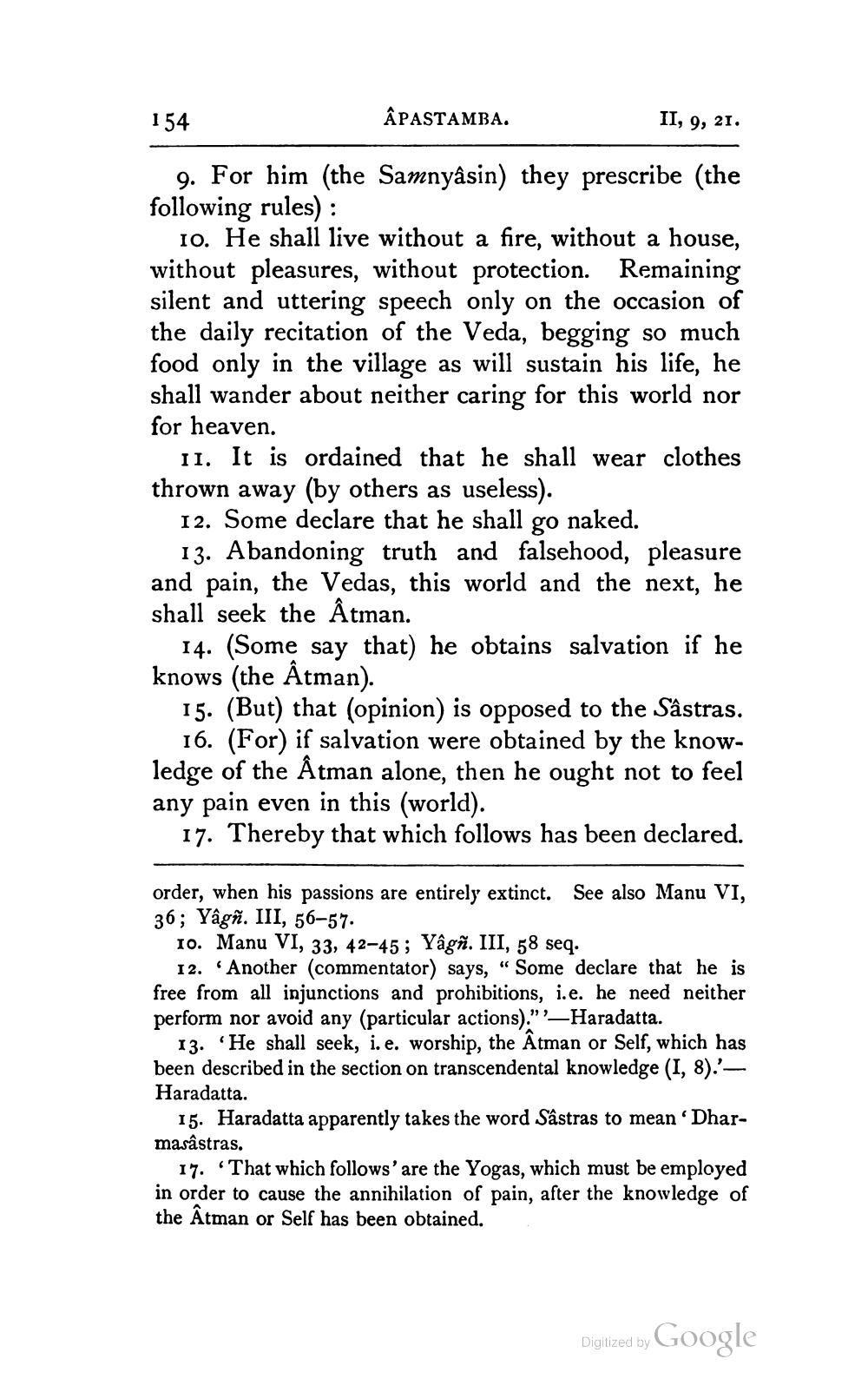________________
154
ÂPASTAMBA.
II, 9, 21.
9. For him (the Samnyâsin) they prescribe (the following rules):
10. He shall live without a fire, without a house, without pleasures, without protection. Remaining silent and uttering speech only on the occasion of the daily recitation of the Veda, begging so much food only in the village as will sustain his life, he shall wander about neither caring for this world nor for heaven.
11. It is ordained that he shall wear clothes thrown away (by others as useless).
12. Some declare that he shall go naked.
13. Abandoning truth and falsehood, pleasure and pain, the Vedas, this world and the next, he shall seek the Âtman.
14. (Some say that) he obtains salvation if he knows (the Atman).
15. (But) that (opinion) is opposed to the Sâstras.
16. (For) if salvation were obtained by the knowledge of the Atman alone, then he ought not to feel any pain even in this (world).
17. Thereby that which follows has been declared.
order, when his passions are entirely extinct. See also Manu VI, 36; Yâgñ. III, 56–57.
10. Manu VI, 33, 42-45; Yâgñ. III, 58 seq.
12. Another commentator) says, “Some declare that he is free from all injunctions and prohibitions, i.e. he need neither perform nor avoid any (particular actions)." —Haradatta.
13. He shall seek, i.e. worship, the Atman or Self, which has been described in the section on transcendental knowledge (I, 8).'— Haradatta.
15. Haradatta apparently takes the word Sâstras to mean 'Dharmasâstras.
17. "That which follows' are the Yogas, which must be employed in order to cause the annihilation of pain, after the knowledge of the Atman or Self has been obtained.
Digitized by Google




